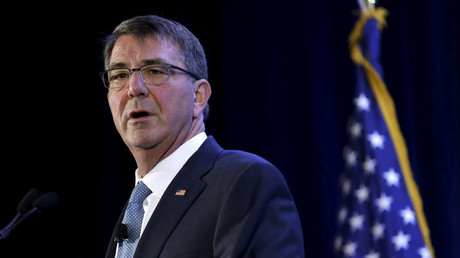Ken Jebsen bei der Berliner Compagnie "Für eine multipolare Koalition des Friedens"
„Berliner Runde – Freidenker im Gespräch“
am Mittwoch, den 9. März 2016, 18.00 Uhr
in den Räumen der „Berliner Compagnie“, Muskauer Strasse 20A, 10997 Berlin*
„Die drohende Kriegsgefahr und was wir dagegen tun können“
Referent und Diskussionspartner: Ken Jebsen
Moderation: Daniel Becker, Dr. Klaus-Peter Kurch
Moderation: Daniel Becker, Dr. Klaus-Peter Kurch
.
Ken Jebsen wird Probleme für die Diskussion anreißen, wie etwa :
- „Grundlinien der US-amerikanisch-deutschen Mobilisierung gegen Russland"
- "Wer, was, wo ist die deutsche Friedensbewegung?"
- "Was können wir tun für den so notwendigen Aufschwung der Friedensbewegung?"
.
Diese unsere thematischen Interessen stehen in engem Zusammenhang mit dem Aufruf:
„Sagt NEIN, ächtet Aggressionen, bannt die Weltkriegsgefahr!“ (Nein zur NATO)
und dem dringenden Appell:
„Multipolare Welt gegen Krieg“ (Für eine multipolare Koalition des Friedens)
.
Wir wünschen uns eine intensive, streitbare und auf die praktische Förderung der Friedensinitiativen gerichtete Diskussion.
Es erübrigt sich, unserer Meinung nach, Ken Jebsen im Rahmen dieser Einladung vorzustellen. Wir verweisen jedoch auf problemorientierte Beiträge wie diesen oder diesen auf unserer Webseite und gegebenenfalls weitere, die in den nächsten Tagen erscheinen. Selbstverständlich steht die Webseite für Meinungsäußerungen offen.
.
Mit solidarischen Grüßen
Daniel Becker, Klaus-Peter Kurch
im Auftrag des Leitungskollektivs
.
*Zur Raumfrage: Die Räume der "Berliner Compagnie" befinden sich im Hinterhaus, Eingang Seitenflügel. Da die Veranstaltung im Rahmen unserer Freidenker-Gesprächsreihe stattfindet, wird jedem unserer Mitglieder und regelmäßigen TeilnehmerInnen ein Sitzplatz garantiert. Darüber hinaus sind interessierte Gäste willkommen! Wir bitten aber in Anbetracht der begrenzten Platzzahl um rechtzeitige Anmeldung (bitte mit Tel.Nr. für etwaige Rückrufe).
Die Muskauer Str. ist vom U-Bhf Kottbuser Tor (Haltestelle Adalbertstraße) mit dem Bus Linie 140 Richtung Ostbahnhof zu erreichen. Vier Minuten Fahrzeit bis Waldemar-/Manteuffelstr., dann 240m Fußweg bis Muskauer Nr. 20A.





